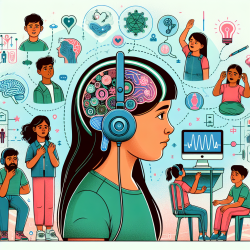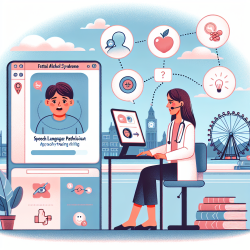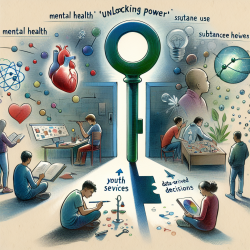Understanding Polyvagal Theory: Enhancing Online Therapy for Children
As practitioners dedicated to creating optimal outcomes for children, it's essential to stay informed about the latest research and theories that can enhance our therapeutic approaches. One such theory that has gained significant attention is the Polyvagal Theory, introduced by Dr. Stephen Porges. This theory provides a comprehensive understanding of the autonomic nervous system's role in social behavior, stress responses, and overall mental and physical health.
What is Polyvagal Theory?
Polyvagal Theory offers a new perspective on how the autonomic nervous system supports social behavior and emotional regulation. It highlights the evolutionary transition from asocial reptiles to social mammals, emphasizing how social interactions can regulate and optimize autonomic function. This theory is particularly relevant for practitioners working with children, as it underscores the importance of creating a safe and supportive environment to foster social engagement and emotional well-being.
Key Concepts of Polyvagal Theory
- Autonomic Nervous System (ANS): The ANS is divided into three primary states: the ventral vagal complex (social engagement), the sympathetic nervous system (fight or flight), and the dorsal vagal complex (shutdown). Understanding these states helps practitioners recognize how children respond to stress and social cues.
- Neuroception: This is the unconscious process of detecting safety and threat in the environment. It influences autonomic state and subsequently affects behavior and emotional responses. For children, creating environments that promote a sense of safety can significantly impact their ability to engage and learn.
- Social Engagement System: This system involves the ventral vagal complex, which supports social behaviors and emotional regulation. Encouraging positive social interactions can enhance this system, leading to better emotional and physical health outcomes for children.
Implementing Polyvagal Theory in Online Therapy
For practitioners providing online therapy services, such as those at TinyEYE, incorporating the principles of Polyvagal Theory can enhance the effectiveness of interventions. Here are some practical strategies:
Create a Safe and Supportive Environment
Ensure that the virtual therapy space feels safe and welcoming. Use warm, prosodic tones when speaking, and encourage children to express themselves freely. Visual cues, such as a friendly and calm demeanor, can also help children feel more at ease.
Encourage Social Engagement
Incorporate activities that promote social interaction and cooperation. Group sessions, virtual playdates, and collaborative games can help children develop their social engagement system. Positive social interactions can enhance their ability to regulate emotions and respond to stress.
Monitor and Adjust Autonomic States
Be mindful of signs of stress or discomfort in children. Techniques such as deep breathing exercises, mindfulness activities, and sensory breaks can help shift their autonomic state from a defensive mode to a more relaxed and engaged state. Tailoring these interventions to individual needs is crucial for their effectiveness.
Encouraging Further Research
While Polyvagal Theory provides a robust framework for understanding and supporting children's social and emotional development, ongoing research is essential. Practitioners are encouraged to stay updated on the latest findings and consider how new insights can be integrated into their practice. Collaboration with researchers and participation in professional development opportunities can further enhance therapeutic outcomes.
To read the original research paper, please follow this link: Polyvagal Theory: A biobehavioral journey to sociality.










